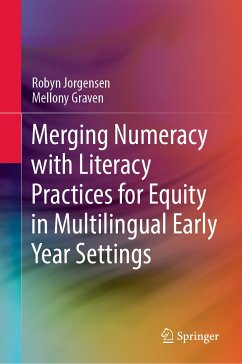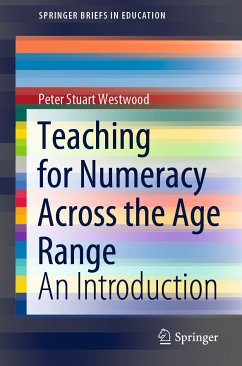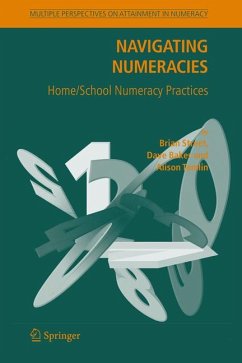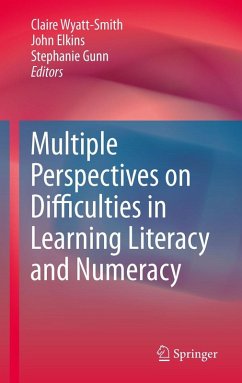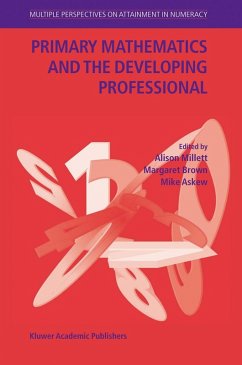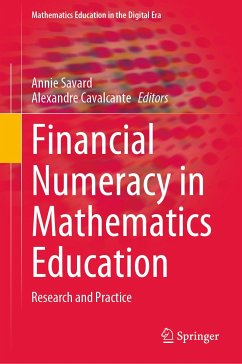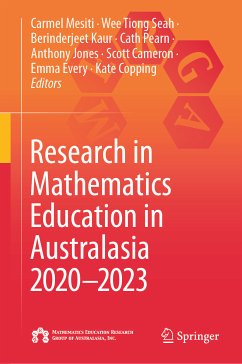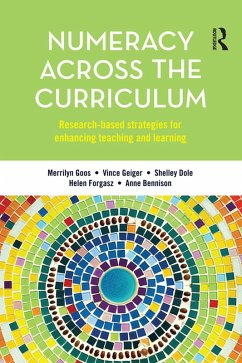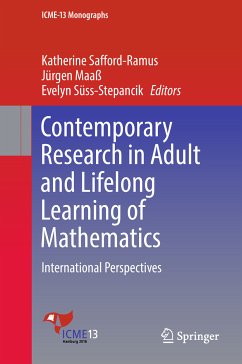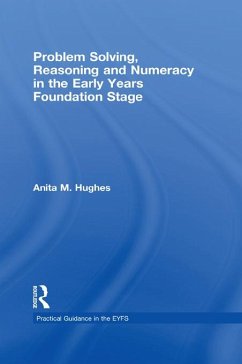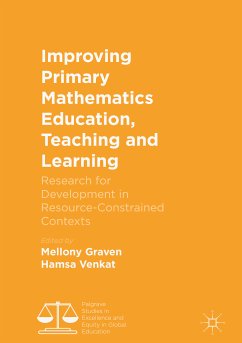
Improving Primary Mathematics Education, Teaching and Learning (eBook, PDF)
Research for Development in Resource-Constrained Contexts
Redaktion: Graven, Mellony; Venkat, Hamsa

PAYBACK Punkte
36 °P sammeln!
This book focuses on how to improve the teaching and learning of primary level mathematics education within resource-constrained contexts. It builds on two large numeracy projects within South Africa which speak to broader, global concerns and highlight how research and development not only enables one to meet ethical imperatives but also explore how further interventions can be developed. Teacher and research communities must work together to create mutually beneficial relationships and establish a cohesive understanding of the requirements of primary mathematics education.
Dieser Download kann aus rechtlichen Gründen nur mit Rechnungsadresse in A, B, BG, CY, CZ, D, DK, EW, E, FIN, F, GR, HR, H, IRL, I, LT, L, LR, M, NL, PL, P, R, S, SLO, SK ausgeliefert werden.



